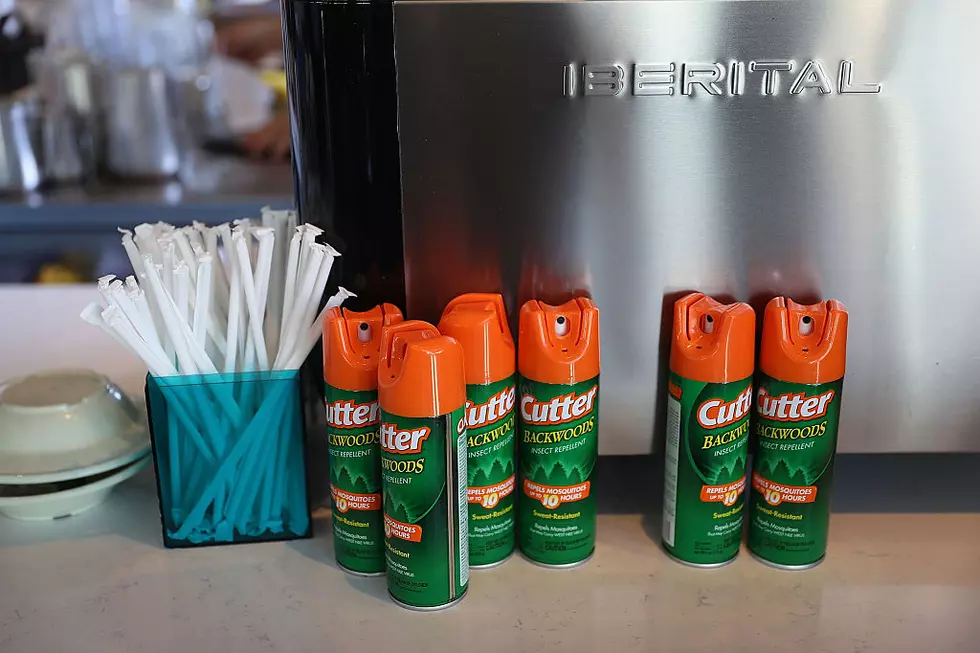
Florida finds Zika in trapped mosquitoes, 1st in US mainland
MIAMI -- Authorities in Florida said Thursday they have found the Zika virus in three groups of trapped mosquitoes in Miami Beach, the first time this has happened in the continental U.S.
The Zika-carrying mosquitoes were trapped in a touristy 1.5-square-mile area of Miami Beach that had been identified as an active zone of active transmission of the virus, the Florida Department of Agriculture and Consumer Services said in a news release.
"This is the first time we have found a Zika virus-positive mosquito pool in the continental United States," said Erin Sykes, a spokeswoman for the U.S. Centers for Disease Control.
Finding the virus in mosquitoes has been likened by the CDC to finding a needle in a haystack, but the testing helps mosquito controllers target their efforts, and it confirms that the insects are indeed a mode of transmission, as suspected. The illness spreads from people to mosquitoes to people again through bites, but the insects do not spread the disease among their own population, and their lifespan is just a few weeks.
The announcement was made Thursday as a poll was released suggesting nearly 48 percent of Americans are wary of traveling to U.S. destinations where people have been infected with Zika through mosquito bites.
The survey of health care attitudes by the Kaiser Family Foundation also found 61 percent felt uneasy about traveling to Zika zones outside the U.S. mainland, including Puerto Rico.
Most of the Zika infections from Florida mosquitoes have been in the Miami area, not the tourist mecca of Orlando and its theme parks.
"There are no non-travel-related cases in Orange County or central Florida," Gov. Rick Scott said earlier this week at an appearance in the Orlando area.
But Miami is a major tourism draw, with more than 15.5 million people making overnight visits to the city and its nearby beaches last year. Overall, Florida set a new record for tourism with more than 105 million people from out of state and other countries visiting the state in 2015.
"This find is disappointing, but not surprising," Commissioner of Agriculture Adam H. Putnam said in a statement Thursday. "Florida is among the best in the nation when it comes to mosquito surveillance and control, and this detection enables us to continue to effectively target our resources."
Since July, authorities have linked a couple dozen cases to transmission in small areas of Miami's Wynwood district and the popular South Beach neighborhood of Miami Beach. Other isolated cases not linked to travel outside the U.S. have been confirmed elsewhere in Miami-Dade County, as well as in neighboring counties and in the Tampa Bay area, totaling 47 for the state.
The Kaiser poll also found that a third of those interviewed believe Congress should make it a top priority to pass legislation increasing money to combat the virus. President Barack Obama proposed $1.9 billion in emergency funding for Zika in February, but Congress has been unable to agree on a final bill.
The poll of 1,211 adults conducted Aug. 18-24 has a margin of error of plus or minus 3 percentage points.
Scott, a Republican, has repeatedly called on Congress to send the president a Zika funding bill.
"We still need the federal government to show up," Scott told reporters recently in Miami. "It's not just a Florida issue."
Meeting with reporters in Washington, U.S. Health and Human Services Secretary Sylvia Burwell expressed frustration that Congress hasn't acted on Zika funding, forcing her to move money from other department accounts. That stopgap funding will run out at the end of the month, she warned.
"The money that's running out is the tide-over money we have taken from other (priorities)," said Burwell. "What we need is a bipartisan agreement." That is how previous Congresses handled earlier public health emergencies such as bird flu and Ebola. Burwell said any Zika bill has to make special provision for Puerto Rico, which has been most severely affected.
In Florida, officials said Miami-Dade County, the City of Miami Beach, and state and federal agencies are continuing to work aggressively to prevent Zika's spread. The county's mosquito control team is inspecting properties to remove standing water where the bugs breed, and spraying in a 1/8-mile radius around the area where the infected mosquitoes were trapped.
Officials said 95 more mosquito samples -- each one containing several dozen bugs -- have tested negative since those three were found.
"As it has been from the beginning, our goal is to eliminate the cycle of transmission by eliminating the mosquitoes," Miami-Dade County Mayor Carlos A. Gimenez said in the news release.
(Copyright 2016 The Associated Press. All rights reserved. This material may not be published, broadcast, rewritten or redistributed.)
More From New Jersey 101.5 FM









